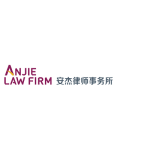On December 25 2019, the Supreme Court promulgated amendments of Several Provisions on Civil Evidence Rules (amendments). The amendments, which will come into effect on May 1 2020, have attracted lots of attention from IP practitioners. The rules are expected to improve the accuracy and standardisation of evidence production procedures and balance the burden of proof between litigants. Below are some highlights of the amendments.
Documented evidence submission order
Due to lack of a US style discovery process, plaintiffs usually have to rely on their own resources to produce evidence that support claims, which proves to be difficult when the evidence is under the control of the defendants. Although one of the Supreme Court's judicial interpretations in 2015 stipulates in principle that the party bearing the burden of proof may request the court to order the other party to submit the documented evidence under its control, it is rarely practised by the courts.
The amendments clarify the rules on the documented evidence submission order by providing details relating to requesting a submission order, examination on the request of the court, the scope of documented evidence that the litigant is obliged to submit, and the consequence of non-compliance with the submission order. More specifically, the petitioner should explain to the court the importance of the facts to be proved by the documented evidence and the reason why the other party should submit the evidence. The court should review both parties' opinions and arrange a hearing if necessary. The documented evidence that the party is obliged to submit includes evidence, such as that once cited by the litigant in litigation, evidence in the other party's interest or which the other party is entitled to access and obtain, account materials, etc. If the party in control of the evidence refuses to submit the evidence without a proper reason or intentionally destroys the evidence, the court can reach a judgment based on the other party's claim. The evidence submission order may somewhat compensate for the limitations of the discovery process.
Electronic data
Electronic data was first introduced as a new form of evidence in 2012 by the Civil Procedure Law, but issues such as the form of the data and authenticity have risen in trial practice due to the nature of electronic data. To solve the problems, the amendments specify types of electronic data and stipulate requirements relating to the litigant's submission of the data, the court's investigation and preservation of electronic data, and the rules on examination of such data. Factors that affect integrity and reliability, such as the hardware and software environment, and the way the data is stored, transmitted and extracted, should be taken into account when determining the authenticity of the electronic data.
Promotion of principle of good faith
False testimony of witnesses and false statements of the parties are very common in Chinese civil litigation despite the general principle of good faith being introduced in 2012 by the Civil Procedure Law. In IP lawsuits, judges are often sceptical of the testimony of expert witnesses and have to rely on written evidence or time-consuming judicial appraisals to find the facts. The amendments now require litigants, witnesses and judicial appraisers to sign and read aloud before being questioned or testifying a promise not to make false testimony or statements. Intentional violation of the promise will lead to a fine, detention and even criminal punishment under Article 111 of the Civil Procedure Law.
Self-admission of facts
A party can be exempted from producing evidence of a fact if it has been admitted by the other party. The amendments stipulate that the attorney's self-admission of a fact will be deemed as self-admission of its principal regardless of the power of attorney. In circumstances where the litigant made the self-admission under coercion or significant misunderstanding, the litigant is not required to prove that what he admitted is inconsistent with the facts. In addition to the court hearing, self-admission can be applied to other procedures such as evidence exchange or investigation and can be in written materials.
Chinese evidence law has experienced significant changes in the past twenty years, including three amendments to the Civil Procedure Law and issuance of the judicial interpretations. As a result of ongoing judicial reform, the amendments are significant changes to the civil evidence process in China. Hopefully the changes will increase the confidence of litigants.

|

|
Dong Ning |
Li Lan |
AnJie Law Firm
26/F, Tower D, Central International Trade Center
6A Jianguomenwai Avenue, Chaoyang District, Beijing 100022, PR China
Tel: +86 10 8567 5988
Fax: +86 10 8567 5999










